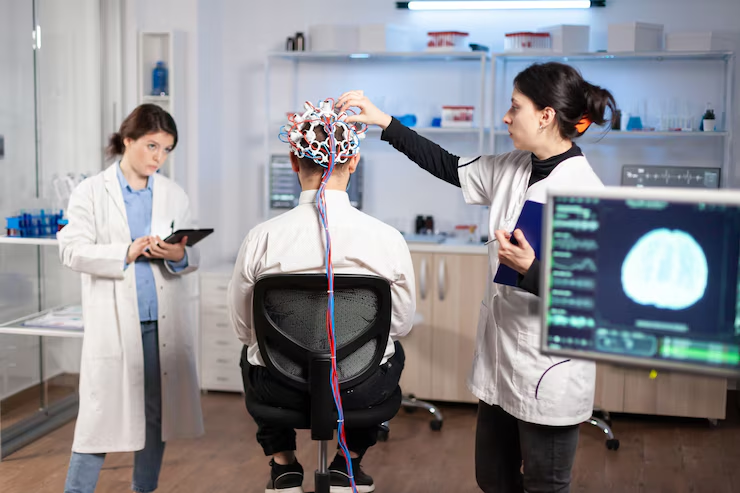Neurological diseases can be confusing and overwhelming, both for patients and their caregivers. The brain and nervous system are incredibly complex, and when things go wrong, it affects every part of life. Luckily, doctorhub360.com neurological diseases offers a treasure trove of information, support, and resources designed to help you navigate this challenging landscape with confidence.
In this article, we’ll explore what neurological diseases are, the most common types, symptoms to watch for, treatment options, and how doctorhub360.com empowers patients and caregivers alike. Whether you’re seeking answers for yourself or a loved one, this guide will shed light on these conditions and provide tools for better care.
What Are Neurological Diseases?
Neurological diseases are disorders that affect the brain, spinal cord, nerves, or muscles. These diseases can disrupt movement, sensation, cognition, and overall body function. They range from acute conditions like stroke to chronic diseases such as Parkinson’s or multiple sclerosis.
The nervous system controls everything from muscle coordination to memory, so any damage or dysfunction can seriously impact daily living. Understanding neurological diseases means recognizing their symptoms early and seeking appropriate care.
Common Neurological Diseases Explained
There are many neurological diseases, but some are more prevalent than others. Here’s a quick overview of the most common ones:
Alzheimer’s Disease: A progressive brain disorder that leads to memory loss, confusion, and behavioral changes.
Parkinson’s Disease: A movement disorder causing tremors, stiffness, and difficulty with balance.
Multiple Sclerosis (MS): An autoimmune disease where the immune system attacks the protective covering of nerves.
Epilepsy: A condition characterized by recurrent seizures caused by abnormal electrical activity in the brain.
Stroke: Occurs when blood flow to a part of the brain is interrupted, leading to sudden neurological deficits.
Amyotrophic Lateral Sclerosis (ALS): A disease causing loss of muscle control due to nerve degeneration.
Each condition has unique symptoms and progression patterns, but they share the common feature of affecting the nervous system.
Signs and Symptoms to Watch For
Early detection is vital for managing neurological diseases effectively. While symptoms vary widely, some warning signs should never be ignored:
Sudden weakness or numbness in limbs
Persistent headaches or migraines
Memory problems or confusion
Unexplained tremors or shaking
Difficulty speaking, swallowing, or understanding speech
Loss of coordination or balance
Sudden vision changes
If you or someone you know experiences any of these symptoms, it’s crucial to consult a healthcare professional immediately.
How doctorhub360.com Supports Patients and Caregivers
Navigating neurological diseases can feel isolating, but doctorhub360.com neurological diseases brings a community and a wealth of resources right to your fingertips. Here’s how it helps:
Comprehensive Information: From causes to treatments, the website breaks down complex topics into easy-to-understand articles.
Latest Research Updates: Stay informed on the newest advancements in neurological care.
Caregiver Resources: Tips, strategies, and emotional support tailored for those caring for neurological patients.
Symptom Checkers: Tools that help identify potential issues and guide next steps.
Access to Specialists: Connect with experienced neurologists and rehabilitation experts.
Patient Stories: Real-life experiences that provide hope and insight.
This holistic approach ensures that patients and caregivers are empowered to make informed decisions and improve quality of life.
Diagnostic Methods for Neurological Diseases
Diagnosing neurological diseases often requires a combination of approaches. Doctorhub360.com emphasizes the importance of early and accurate diagnosis using:
Neurological Exam: Doctors assess reflexes, muscle strength, coordination, and sensation.
Imaging Tests: MRI, CT scans, and PET scans provide detailed views of the brain and spinal cord.
Electrodiagnostic Tests: EEGs (to measure brain electrical activity) and EMGs (to assess muscle response) help pinpoint problems.
Blood Tests: Rule out infections, autoimmune issues, or metabolic causes.
Lumbar Puncture: Analyzes cerebrospinal fluid for infections or inflammation.
Prompt diagnosis can lead to better outcomes by starting treatment early.
Treatment Options Available
Treatment depends on the specific neurological condition and its severity. Doctorhub360.com neurological diseases outlines several treatment modalities:
Medications: To control symptoms such as seizures, inflammation, or muscle spasms.
Physical Therapy: Helps improve strength, balance, and mobility.
Occupational Therapy: Assists in adapting daily activities and regaining independence.
Speech Therapy: Addresses communication and swallowing difficulties.
Surgical Interventions: In some cases, surgery may be required to relieve pressure or repair damage.
Lifestyle Changes: Healthy diet, regular exercise, and stress management support brain health.
Emerging Therapies: Including stem cell treatments and neurostimulation devices.
A personalized treatment plan created with healthcare providers offers the best chance at managing symptoms effectively.
Managing Life with Neurological Diseases
Living with a neurological disease requires ongoing adjustment and support. Doctorhub360.com encourages patients and caregivers to focus on:
Education: Understanding the disease helps reduce anxiety and improve care decisions.
Support Networks: Connecting with support groups or online communities for emotional help.
Routine: Maintaining a daily schedule aids in stability and reduces confusion.
Monitoring: Keeping track of symptoms and treatment effects to inform doctors.
Self-Care: Prioritizing mental health and relaxation to prevent burnout.
Assistive Technology: Tools like mobility aids and communication devices enhance independence.
By embracing these strategies, individuals can improve their quality of life despite neurological challenges.
Preventive Measures and Brain Health Tips
While some neurological diseases are unavoidable, certain lifestyle habits can help protect brain health:
Eat a balanced diet rich in antioxidants and omega-3s
Engage in regular physical activity
Avoid smoking and limit alcohol intake
Stay mentally active through reading, puzzles, or learning new skills
Manage chronic conditions such as diabetes or hypertension
Prioritize sleep and stress reduction
Doctorhub360.com stresses that prevention and early intervention are key to minimizing the impact of neurological disorders.
The Future of Neurological Disease Care
Advancements in neuroscience and technology are opening new doors for patients. From AI-powered diagnostics to personalized medicine, the future looks promising. Doctorhub360.com neurological diseases keeps users updated on breakthroughs such as:
Gene therapies targeting specific mutations
Neuroprotective drugs aiming to halt progression
Brain-computer interfaces improving communication
Virtual reality for rehabilitation and pain management
Staying informed through reliable sources can help patients benefit from these exciting developments.
Conclusion
Neurological diseases may seem daunting, but with the right knowledge and support, managing them becomes achievable. doctorhub360.com neurological diseases stands out as a reliable guide, offering accessible information, expert resources, and community support to those affected. Early recognition, timely diagnosis, and comprehensive care are the pillars of living well with neurological challenges.
Remember, you are not alone on this journey. Empower yourself with facts, reach out for help, and take proactive steps toward better brain health.
FAQs about doctorhub360.com Neurological Diseases
1. What kind of information does doctorhub360.com provide on neurological diseases?
They offer detailed, easy-to-understand resources on symptoms, treatments, and caregiving.
2. Can doctorhub360.com help caregivers too?
Yes, it provides tools and advice specifically for those supporting patients.
3. Are the treatment options discussed on doctorhub360.com up-to-date?
The site regularly updates content to reflect the latest medical research and therapies.
4. How can I use doctorhub360.com to find a neurologist?
The platform offers guidance on locating and connecting with neurological specialists.
5. Does doctorhub360.com cover rare neurological diseases?
Yes, it includes information on both common and less frequent neurological disorders.
6. Is doctorhub360.com a free resource?
Yes, the information and many tools on the site are freely accessible to everyone.






